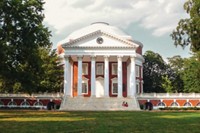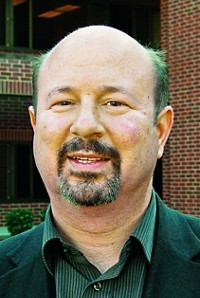Advertisement
Grab your lab coat. Let's get started
Welcome!
Welcome!
Create an account below to get 6 C&EN articles per month, receive newsletters and more - all free.
It seems this is your first time logging in online. Please enter the following information to continue.
As an ACS member you automatically get access to this site. All we need is few more details to create your reading experience.
Not you? Sign in with a different account.
Not you? Sign in with a different account.
ERROR 1
ERROR 1
ERROR 2
ERROR 2
ERROR 2
ERROR 2
ERROR 2
Password and Confirm password must match.
If you have an ACS member number, please enter it here so we can link this account to your membership. (optional)
ERROR 2
ACS values your privacy. By submitting your information, you are gaining access to C&EN and subscribing to our weekly newsletter. We use the information you provide to make your reading experience better, and we will never sell your data to third party members.
Policy
Fighting Back For Academic Freedom
University of Virginia buttresses defense against attorney general's fraud probe
by Cheryl Hogue
November 1, 2010
| A version of this story appeared in
Volume 88, Issue 44

As Virginia's attorney general pushes forward on a fraud investigation of a climate-change researcher, the University of Virginia is ramping up its defense of academic freedom.
A legal demand from Virginia Attorney General Kenneth T. Cuccinelli II (R) for reams of documents related to the climate scientist, a former UVA faculty member, "constitutes an unprecedented and improper governmental intrusion into ongoing scientific research," the university argues. Cuccinelli wants the data to determine whether the researcher committed fraud when obtaining a state research grant. But in court papers filed on Oct. 20, UVA says legal action "targets a university professor for investigation because the attorney general disagrees with his academic research regarding climate change."
Groups including the American Association of University Professors (AAUP) and the Union of Concerned Scientists (UCS) warn that Cuccinelli's probe has broad ramifications. It could spook researchers and scholars at public universities and colleges, driving them away from subjects with policy implications, such as environmental regulations, the organizations say. And the investigation could discourage public colleges and universities from hiring or granting tenure to academics who produce such work, they say.
Targeted in the probe is climate scientist Michael E. Mann. He developed the formerly contested "hockey stick" graph of temperature fluctuations over the past 1,000 years. Although Mann's work has withstood scientific scrutiny, many climate-change skeptics continue to point to this graph as a hallmark flaw in global-warming projections and in reports from the Intergovernmental Panel on Climate Change (IPCC). Mann, now director of Pennsylvania State University's Earth System Science Center, was an assistant professor in UVA's department of environmental sciences from 1999 to 2005. Mann is also one of the climate scientists whose controversial e-mails were made public in late 2009 (C&EN, Dec. 21, 2009, page 11).
The legal wrangling between Cuccinelli and UVA began in April, when the attorney general ordered the university to hand over e-mails and other documents relating to an investigation into alleged fraud in a state research grant that Mann shared with two other UVA faculty members (C&EN, May 10, page 10). At the end of August, a circuit court judge put the kibosh on Cuccinelli's efforts, ruling that the attorney general failed to spell out what he suspects Mann did that was fraudulent with regard to the grant (C&EN, Sept. 6, page 56). Within a month, Cuccinelli continued his quest in a two-pronged approach. First, he filed a new information demand against UVA, conforming to the circuit court judge's order. Second, the attorney general announced that he will appeal the judge's decision to the Virginia Supreme Court (C&EN, Oct. 11, page 12).
In his latest demand, Cuccinelli says his fraud probe is based on two of Mann's papers published in 1998 and 1999—before the researcher joined UVA's faculty—that gave rise to the hockey—stick graph. Mann listed these publications in the curriculum vitae (CV) he submitted as part of the grant application. The attorney general alleges that when Mann applied for the state grant in 2001, the researcher knew or should have known that those papers "contained false information, unsubstantiated claims, and/or were otherwise misleading."
"The allegation isn't even that the targeted grant somehow involved misuse of funds," says Rachel Levinson, senior counsel for AAUP, a nonprofit group that promotes academic freedom. "His CV included two papers related to global warming, and therefore that was somehow fraudulent?" she asks.
The fact that Mann's scientific work is contested—some of his detractors argue it is flat-out wrong—doesn't provide a legal basis for fraud, says Roger A. Pielke Jr., a professor at the Center for Science & Technology Policy Research at the University of Colorado, Boulder. Pielke is a prominent critic of some science and policy positions on climate change, but he makes no conclusions about the veracity of Mann's science.
"That's what happens in academia: People put out theories, they do their best to justify them," Pielke tells C&EN. "If they turn out to have been wrong, well, that's how it goes. Such cases are not equivalent to being fraudulent."
"What's going on here is disagreement over science," Levinson says. "Scientific controversy isn't fraud."
"This investigation has never been about fraud or the facts," charges Francesca Grifo, director of the Scientific Integrity Program at UCS. "Cuccinelli is abusing his power to fight a public relations war against scientific findings."
In papers it filed in court, UVA argues that Cuccinelli's latest information demand, which is focused on a $214,700 grant from the university's Fund for Excellence in Science & Technology, impinges on basic liberties. The attorney general's order "encroaches on First Amendment principles and important public policies protecting the academic freedom of institutions of higher learning from government intrusion into research and scientific inquiry," UVA says.
The First Amendment to the U.S. Constitution prohibits the government from restricting free speech. Connected to this is the legal notion of academic freedom: liberty for inquiry and expression by students and faculty.
In earlier legal arguments, Cuccinelli has said the First Amendment does not provide a special class of protections for academic expression.
AAUP's Levinson says Cuccinelli's sweeping request could steer academicians away from studying issues that provoke political debate because of fear of a legal investigation driven by political winds.
"We as a public would run the risk that scientists and other scholars might be less willing to engage in controversial work," Levinson says.
AAUP, UCS, the American Civil Liberties Union, and the Thomas Jefferson Center for the Protection of Free Expression laid out their academic-freedom concerns in a joint friend-of-the-court brief filed with the Virginia circuit court.
"The Attorney General's approach—investigating a professor on suspicion of fraud simply because his work has sparked political and scientific controversy—could have a grave chilling effect on scholarship and research at universities," the groups say in their brief. "Seeking to avoid the stigma (not to mention legal costs) involved in a fraud investigation, professors would hesitate to research, publish, or even teach on potentially controversial subjects. Cost-conscious universities would hesitate to employ professors whose research challenges conventional scientific or political thinking."
The groups continue: "Either result directly interferes with universities' important societal role as 'intellectual experiment stations.' Moreover, forcing a university to turn over private correspondence between academics based solely on controversy surrounding an academic's work invariably chills intellectual debate among professors. While academics expect that their research will eventually be subjected to the rigors of peer review, the correspondence the attorney general seeks likely represents not final conclusions, but initial thoughts, suspicions, or hypotheses."
In the August opinion, the circuit court judge brushed past academic-freedom arguments. But Levinson says the issue will come up again in the appeal of the August decision before the Virginia Supreme Court and in UVA's legal opposition in the lower court to Cuccinelli's new order.
Meanwhile, some observers see the Mann investigation as an extension of Cuccinelli's challenge of the Environmental Protection Agency's December 2008 decision to regulate carbon dioxide and other greenhouse gases as pollutants under the federal Clean Air Act. In August, the agency upheld that determination, the so-called endangerment finding, by rejecting requests from Cuccinelli and others to reverse it. In response, Virginia is filing a federal lawsuit to block the agency from regulating CO2, as are Texas and a number of conservative groups. They accuse the agency of having relied too heavily on IPCC reports in making the endangerment finding (C&EN, Aug. 9, page 6).
"There is a doctrinaire, right-wing Republican assault on virtually everything EPA does right now," says Frank O'Donnell, president of the environmental group Clean Air Watch. This, he says, "extends to scientists who come up with studies that support tougher environmental restrictions."
Others disagree. "I don't see any real, concerted effort to go after climate scientists," Pielke tells C&EN. "In some sense, it's a bit of a tempest in a teapot. We'll move on to the next controversy in climate science. There will be no shortage of these sorts of issues."
A spokesman for Cuccinelli tells C&EN that the investigation into Mann's grant application isn't related to Virginia's federal case against EPA's decision to regulate greenhouse gases.
The next round of legal procedures in the UVA case is expected later this year. Arguments over academic freedom will likely become fiercer, and the courts might provide new interpretations of the law on this issue.





Join the conversation
Contact the reporter
Submit a Letter to the Editor for publication
Engage with us on Twitter